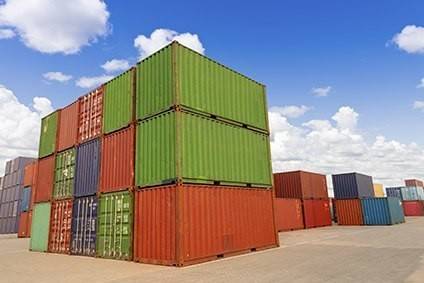
Former commander of the US Transportation Command, Lyons will take over the role from John Porcari and will work with the US Department of Transportation (USDOT), the White House National Economic Council (NEC), ports, rail, trucking, and other private companies across US supply chains to continue to address bottlenecks, speed up the movement of goods, and help lower costs for US families.
For the past year, the Biden-Harris Supply Chain Disruptions Task Force is said to have undertaken extensive outreach and engagement with the nation’s ports and private companies to address immediate supply chain bottlenecks and ultimately build a more resilient, globally competitive goods movement chain for the 21st century.
The Task Force has worked with ports to propose a container dwell fee to reduce congestion at the ports, launched a trucking action plan to recruit and retain more drivers, funded pop-up container yards to get goods from ships to shelves faster while supporting agricultural exporters, moved supply chain operators toward 24/7 operations, and launched a data-sharing effort, Freight Logistics Optimization Works (FLOW), with Target, FedEx, UPS, True Value, ocean shippers, ports and additional stakeholders to reduce shipping costs and ultimately consumer costs at the store.
“Envoy John Porcari has done a tremendous job addressing challenges at every stage of the supply chain, and goods have moved more quickly and affordably because of his actions,” said transportation secretary Pete Buttigieg, who leads the Task Force focus on ports and trucking issues, among others.
“Global supply chains will remain fragile as long as the pandemic continues to disrupt ports and factories around the world, and a lot of work remains to reduce shipping delays and costs for American families. We are grateful that general Lyons, formerly commander of the US Transportation Command, will now take on the role of ports and supply chain envoy, working across every level of government, labour, and industry to strengthen America’s supply chains.”
Lyons added: “The Biden-Harris Administration has made tremendous progress on addressing the supply chain disruptions we’ve seen as we recover from the pandemic. I look forward to rolling up my sleeves and continuing to engage industry, labour, and port stakeholders to improve the fluidity of our supply chains, cut down on shipping costs, and ultimately save money for the American people.”
USDOT said in the long term, the implementation of the President’s Bipartisan Infrastructure Law will make the investments needed in US ports, railways, highways, and other modes of transportation to improve supply chain infrastructure. In May, USDOT announced the most annual funding from DOT’s Port Infrastructure Development Program (PIDP) in Departmental history and earlier this year announced the most funding for Marine Highways in American history.
Together, these actions are leading to progress, it noted, and added long-dwelling containers at the Port of Los Angeles and Long Beach dropped by about 50% since the proposed fee. The total number of container ships waiting to enter US ports have also dropped by nearly 50% since peaking in early February – even as containerised imports increased for most ports in March.
In March, a cohort of 49 trade associations sent a letter urging the US Administration to pre-empt disruption at the nation’s busiest ports.



